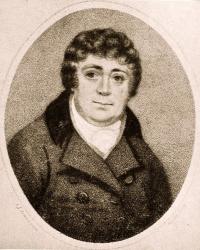Planning worship?
Check out our sister site, ZeteoSearch.org,
for 20+ additional resources related to your search.
- |
User Links
Person Results
Ralph Vaughan Williams

1872 - 1958 Arranger of "FOREST GREEN" in Hymns to the Living God Through his composing, conducting, collecting, editing, and teaching, Ralph Vaughan Williams (b. Down Ampney, Gloucestershire, England, October 12, 1872; d. Westminster, London, England, August 26, 1958) became the chief figure in the realm of English music and church music in the first half of the twentieth century. His education included instruction at the Royal College of Music in London and Trinity College, Cambridge, as well as additional studies in Berlin and Paris. During World War I he served in the army medical corps in France. Vaughan Williams taught music at the Royal College of Music (1920-1940), conducted the Bach Choir in London (1920-1927), and directed the Leith Hill Music Festival in Dorking (1905-1953). A major influence in his life was the English folk song. A knowledgeable collector of folk songs, he was also a member of the Folksong Society and a supporter of the English Folk Dance Society. Vaughan Williams wrote various articles and books, including National Music (1935), and composed numerous arrangements of folk songs; many of his compositions show the impact of folk rhythms and melodic modes. His original compositions cover nearly all musical genres, from orchestral symphonies and concertos to choral works, from songs to operas, and from chamber music to music for films. Vaughan Williams's church music includes anthems; choral-orchestral works, such as Magnificat (1932), Dona Nobis Pacem (1936), and Hodie (1953); and hymn tune settings for organ. But most important to the history of hymnody, he was music editor of the most influential British hymnal at the beginning of the twentieth century, The English Hymnal (1906), and coeditor (with Martin Shaw) of Songs of Praise (1925, 1931) and the Oxford Book of Carols (1928).
Bert Polman
Ralph Vaughan Williams
Anonymous
Person Name: Anon. Author of "Ho! ye that thirst, approach the spring" in The Presbyterian Book of Praise In some hymnals, the editors noted that a hymn's author is unknown to them, and so this artificial "person" entry is used to reflect that fact. Obviously, the hymns attributed to "Author Unknown" "Unknown" or "Anonymous" could have been written by many people over a span of many centuries.
Anonymous
Louis Spohr
1784 - 1859 Person Name: Louis Spohr, 1784-1859 Composer of "SPOHR" in The Book of Praise Also:
Spohr, Ludwig, 1784-1859
Shpor, Lui, 1784-1859
Spohr, L. (Louis), 1784-1859
Shpor, Ludvig, 1784-1859
Spohr, Ludewig, 1784-1859
Louis Spohr
T. C. L. Pritchard
1885 - 1960 Person Name: Thomas Cuthbertson Leitead Pritchard, 1885-1960 Harmonizer of "GRÄFENBERG" in The Irish Presbyterian Hymnbook Thomas Cuthbertson Leithead Pritchard
T. C. L. Pritchard
Samuel Arnold

1740 - 1802 Person Name: Dr. Arnold Composer of "ARNOLD" in The Song Companion to the Scriptures Dr. Samuel Arnold, an English musician and composer; born in London, Aug. 10, 1739; composed for the theatre, the church, and also oratorio music; succeeded Dr. Nares as organist; died at Westminster, Oct. 22, 1802.
A Dictionary of Musical Information by John W. Moore, Boston: Oliver, Ditson & Company, 1876
Samuel Arnold
Charles Hutcheson
1792 - 1860 Person Name: Charles Hutcheson, 1792 - 1860 Composer of "STRACATHRO" in The Hymnary of the United Church of Canada Born: 1792, Glasgow, Scotland.
Died: January 20, 1860, Glasgow, Scotland.
Hutcheson was a merchant in Glasgow, and a member of St. George’s parish church. An amateur composer and founding member of the Glasgow Diletanti Society, he published an essay on church music, and a number of hymn tunes, in Christian Vespers (1832).
--www.hymntime.com/tch
Charles Hutcheson
William Robertson
1820 - 1864 Person Name: W. Robertson (?) Author of "Ho, ye that thirst, approach the spring" in The Song Companion to the Scriptures Robertson, William, M.A., eldest son of the Rev. John Robertson, D.D., of Cambuslang, Lanarkshire, was born at Cambuslang, July 15, 1820. He studied and graduated M.A. at the University of Glasgow. In 1843 he became parish minister of Monzievaird, Perthshire, where he died June 9, 1864. He was appointed a member of the Hymnal Committee of the Established Church in 1852, 1853, and 1857, and contributed 2 hymns to their Hymns for Public Worship, 1861, since included in their Scottish Hymnal, 1869, which have attained considerable popularity, viz., "A little child the Saviour came" (Christmas), and a version of the Te Deum, which begins, "Thee God we praise, Thee Lord confess." [Rev. James Mearns, M.A.]
--John Julian, Dictionary of Hymnology (1907)
William Robertson
G. B. L. Cunliffe
Composer of "WATER OF LIFE" in The Song Companion to the Scriptures
G. B. L. Cunliffe


 My Starred Hymns
My Starred Hymns


